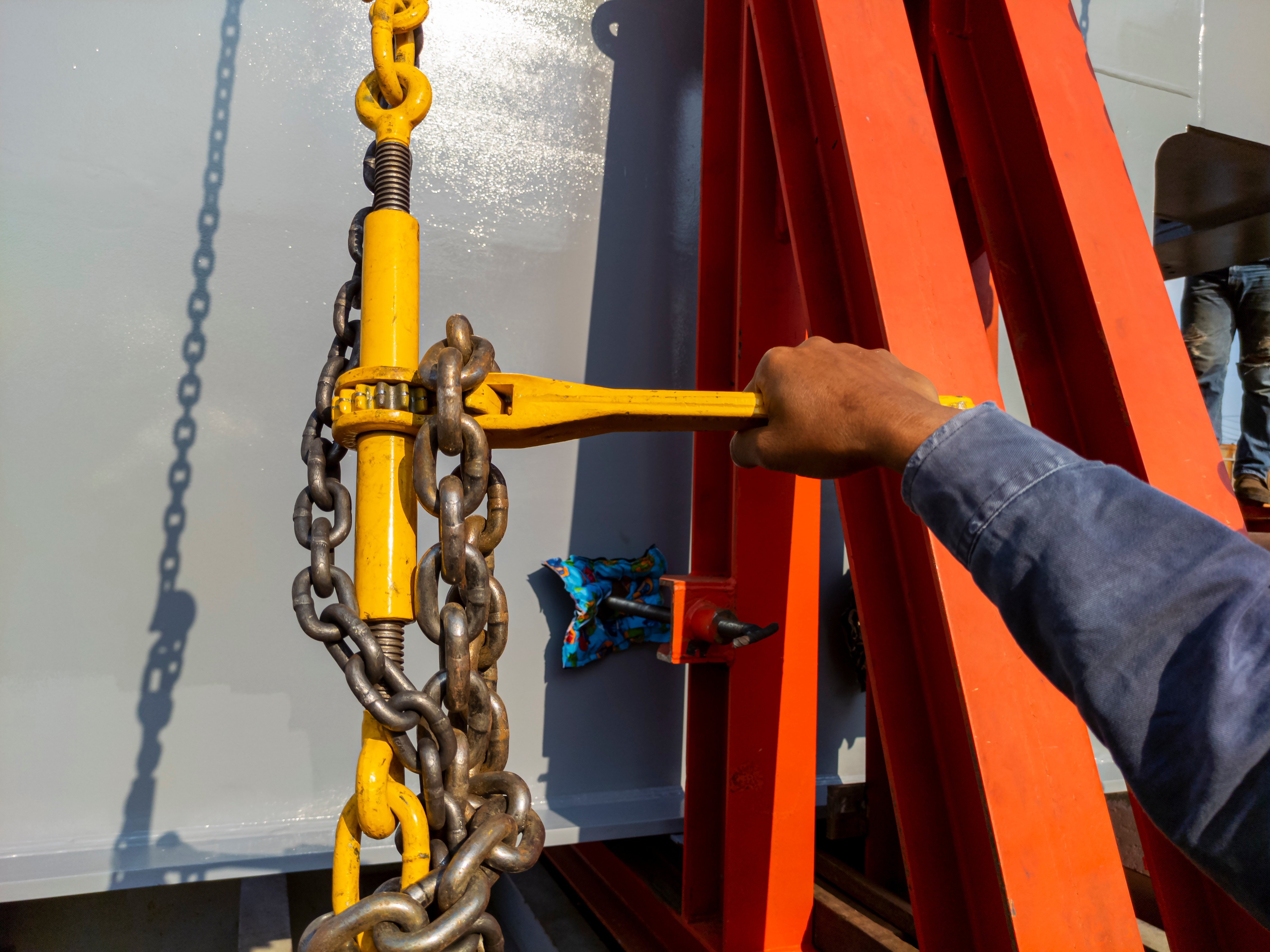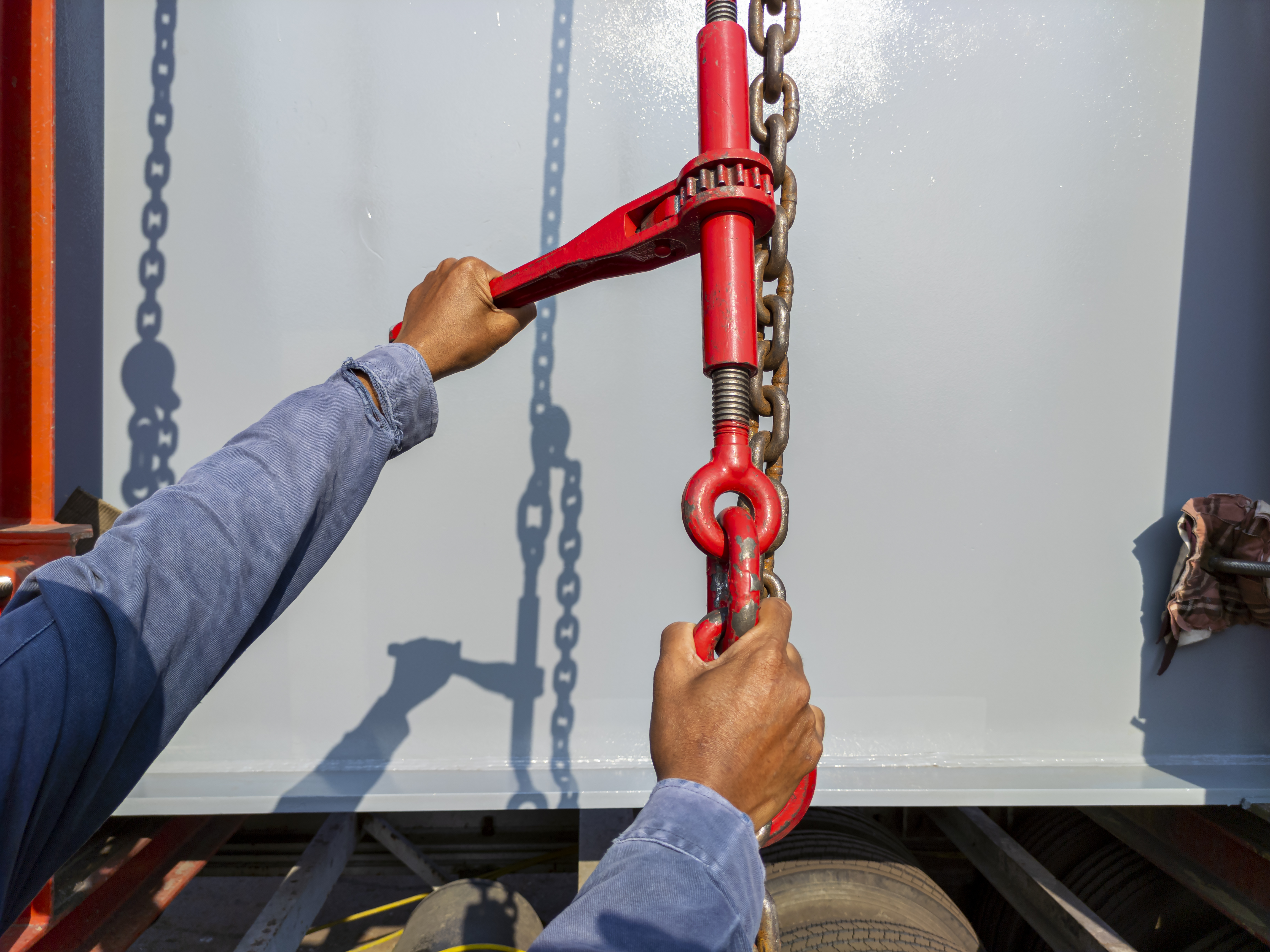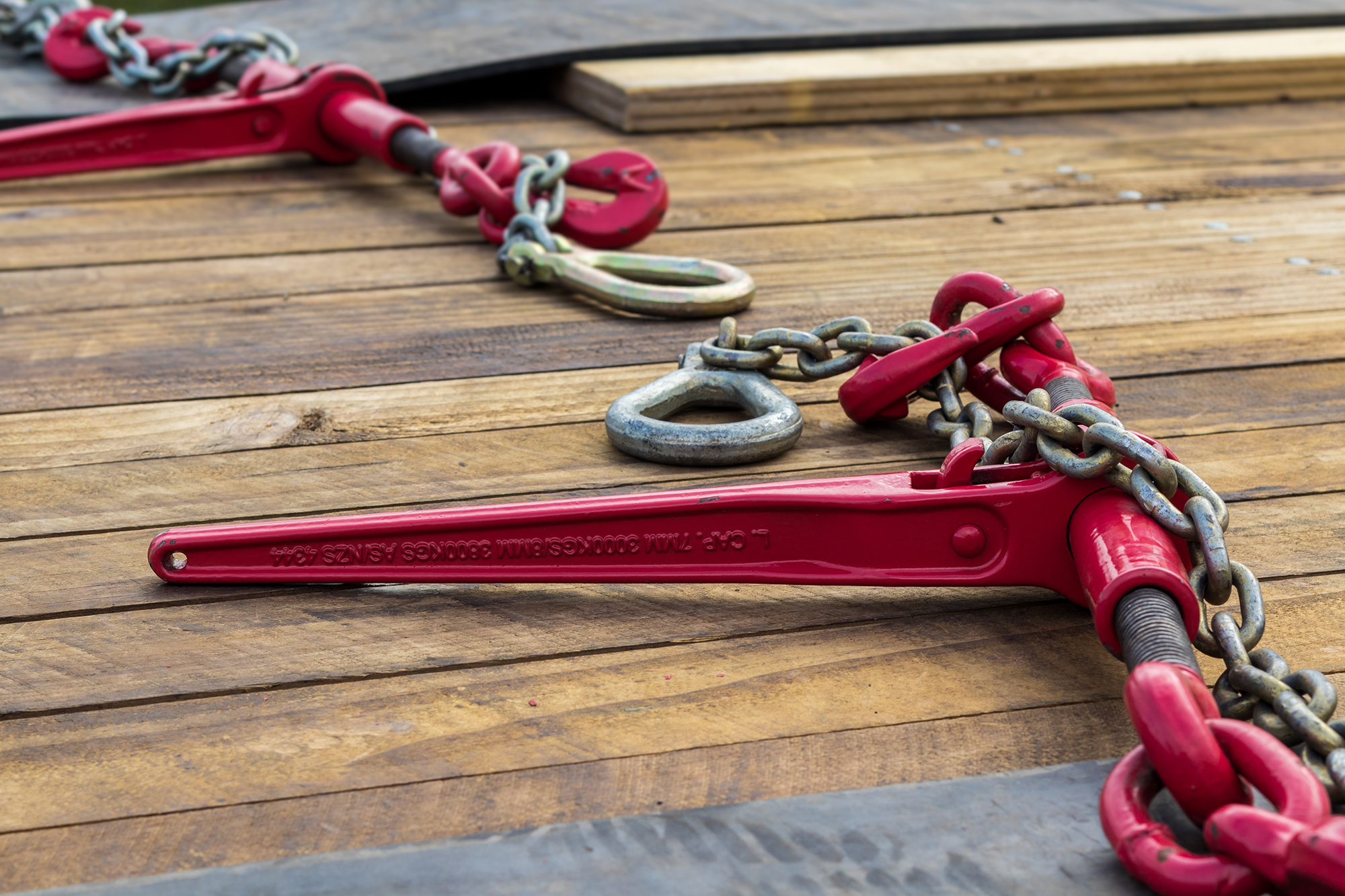Common Rigging Mistakes to Avoid When Using Load Binders
Common Rigging Mistakes to Avoid When Using Load Binders
Load binders play a critical role in securing heavy loads, ensuring they remain stable during lifting and transport. However, improper use can lead to serious accidents, equipment failure, and costly delays. To maintain a safe and efficient worksite, it's essential to understand common rigging mistakes and how to prevent them.
Load binders come in different types, such as ratchet and lever binders, with varying working load limits (WLL). For example, ratchet binders typically have a WLL between 5,400 lbs and 15,000 lbs, depending on the size and grade of the chain used. Choosing the right load binder is essential to ensuring safe operations. Ask our experts at Hercules Crane & Lifting Supplies for guidance on which load binder is best for your needs.
Overlooking Training and Education
One of the biggest mistakes in rigging operations is failing to provide proper training for workers. Rigging requires skill and precision, and without the right knowledge, workers may unknowingly create hazardous conditions. Regular training sessions should cover the correct use of load binders, safe lifting techniques, and common errors to avoid. Hands-on practice with real equipment can reinforce learning and improve overall safety.
Choosing the Wrong Load Binder
Not all load binders are the same. Using an incorrect binder for a specific load can lead to equipment failure or unsafe conditions.
Always select a load binder based on:
Intended application
Load capacity
Material and durability
Chain compatibility
Safety standards
For unique lifting tasks, consider custom lifting solutions designed to meet specific job requirements and safety standards. Ask our experts at Hercules Crane & Lifting Supplies for guidance on which load binder is best for your needs. Also see our blog: Types of Load Binders & Choosing the Best for the Job!
Poor Load Distribution
Uneven weight distribution is a major risk factor in rigging operations. If a load is improperly balanced, it can tip, shift, or place excessive strain on the load binder. Before securing any load, take the time to distribute the weight evenly and make necessary adjustments to prevent movement during transport.
Ignoring Load Capacity Limits
Every load binder has a working load limit (WLL) and safe working load (SWL). Exceeding these limits can lead to catastrophic failures, including:
Binder breakage
Load slippage
Equipment damage
Workplace injuries or fatalities
Always check load limits and ensure that binders and chains are rated for the specific weight being lifted. If you're unsure, consult Hercules Crane & Lifting Supplies to select the right equipment for your job.
Neglecting Regular Maintenance
Routine inspections and maintenance are vital for ensuring the longevity and reliability of load binders. Implement a maintenance schedule that includes:
Cleaning binders to remove debris and buildup
Checking for rust, cracks, or wear
Lubricating moving parts
Replacing damaged components
Testing binder performance before use
A proactive maintenance approach reduces the risk of unexpected failures and costly downtime.
Improper Tensioning of Load Binders
Applying too much or too little tension can compromise load security. Over-tightening may damage cargo or the binder itself, while under-tightening can result in load shifting. Regular checks should be conducted to maintain proper tension throughout transport.
Skipping Pre-Use Inspections
Load binders experience wear and tear over time, and small defects can lead to big problems. Before each use, inspect binders for:
Cracks or fractures
Deformation or bending
Loose or missing components
Improper lubrication
Documenting these inspections ensures compliance with safety regulations and helps track equipment condition over time.
Using Incompatible Rigging Equipment
Mixing mismatched chains, hooks, and binders is a dangerous practice that weakens the entire rigging system. Always use compatible components that are rated for the same load capacity to prevent failures.
Failing to Secure Load Binder Handles
A loose handle can cause a sudden release of tension, leading to shifting loads and safety hazards. Use locking mechanisms or additional safety measures to secure handles in place during operations.
Neglecting Environmental Factors
Weather conditions can significantly impact rigging safety. High winds, extreme cold, or heavy rain can weaken equipment and affect load stability. Always consider environmental factors when planning lifting operations and adjust techniques accordingly.
Failing to Account for Dynamic Forces
Loads in motion create additional stress on rigging equipment. Dynamic forces can loosen binders, increase component wear, and lead to sudden failures. Regular tension checks and proper securing methods help mitigate these risks.
Reusing Damaged Load Binders
Using a damaged binder to save time or money is a dangerous gamble. Even minor defects can compromise strength and performance. Always replace damaged binders immediately to maintain workplace safety and avoid legal consequences.
Using the Wrong Type of Chain
Chains and load binders must work together. Using an incompatible or undersized chain can weaken the setup and increase the risk of failure. Always ensure that chains match the binder's specifications and weight limits.
Improper Storage of Load Binders
Storing load binders in harsh conditions can lead to premature wear and corrosion. Keep binders in a dry, well-ventilated area away from moisture, chemicals, and extreme temperatures to extend their lifespan.
Preventing Rigging Mistakes for a Safer Workplace
Avoiding these common rigging mistakes ensures a safer, more efficient worksite. Proper training, equipment selection, maintenance, and inspections all contribute to secure lifting and transportation operations.
At Hercules Crane & Lifting Supplies, we offer expert advice and high-quality rigging products to help you achieve safe and reliable lifting operations. Ask our experts for guidance on selecting the right load binder for your specific needs. Contact us today for professional guidance and top-tier rigging solutions.
📞 Call us now 1 (877) 461-4876 to get a free consultation and keep your lifting operations running safely and efficiently.
——————————————————————————————————————————————
The Hercules Group of Companies encompasses a wide portfolio of products and services across multiple, diverse companies.

